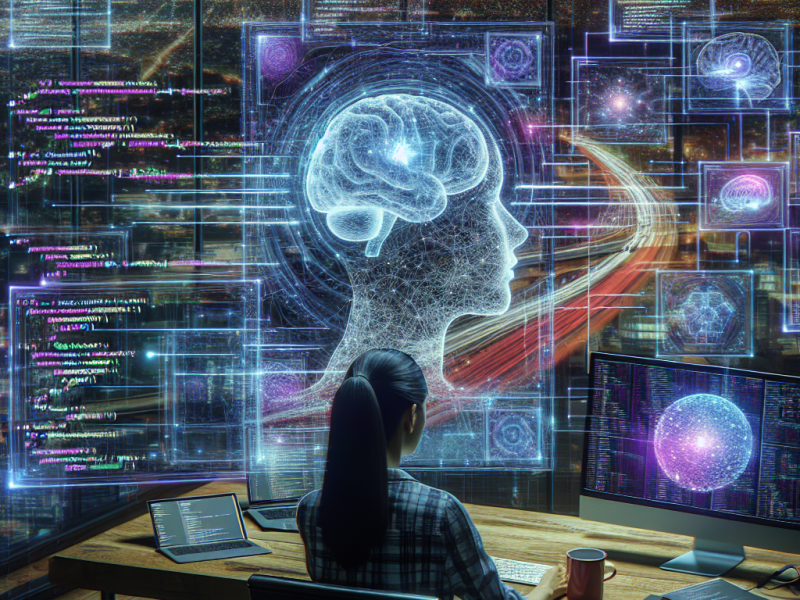In recent years, the integration of artificial intelligence (AI) into software development has begun to revolutionize the industry. AI-generated code, in particular, is at the forefront of this transformation, offering solutions that enhance productivity and creativity. This blog provides a comprehensive examination of AI-generated code, exploring its current applications, benefits, and limitations, as well as its potential to shape the future of software development.
Definition and Overview
AI-generated code involves the use of AI algorithms to automatically produce computer code. These systems leverage machine learning models trained on vast datasets of existing code to understand patterns and generate new code snippets or even complex programs. Unlike traditional coding, which relies on human input for every line of code, AI-generated code can autonomously create functional code, thus streamlining the development process and reducing human error.
Benefits of AI-Generated Code
AI-generated code presents numerous advantages:
- Efficiency: By automating mundane and repetitive coding tasks, AI allows developers to focus on more complex aspects of software development, thus accelerating project timelines.
- Cost Reduction: Automation reduces the need for extensive manual coding, lowering development costs and enabling companies to allocate resources more effectively.
- Consistency: AI-generated code maintains a high level of consistency in terms of coding standards and quality, which is crucial for maintaining large codebases.
- Innovation: With routine tasks automated, developers are free to explore creative solutions and innovative approaches, fostering a more dynamic development environment.
Use Cases in Software Development
AI-generated code is employed in various scenarios:
- Code Completion: AI tools like GitHub Copilot suggest code snippets in real-time, assisting developers in writing cleaner and more efficient code.
- Bug Detection: AI models can analyze codebases to identify and fix bugs, reducing the time spent on debugging and improving the software’s reliability.
- Framework Development: AI systems can generate entire frameworks tailored to specific project needs, facilitating more efficient and customized software solutions.
- Legacy Code Modernization: AI helps modernize legacy systems by converting outdated code into more efficient, scalable versions, extending the lifespan of older software.
Challenges and Limitations
Despite its potential, AI-generated code is not without challenges:
- Accuracy: Ensuring that AI-generated code is accurate and performs as intended remains a critical concern, necessitating thorough testing and validation.
- Security: Automated code generation can introduce vulnerabilities, making security a significant consideration in its deployment.
- Ethical Concerns: AI models may inadvertently perpetuate biases present in the training data, raising ethical questions about their use.
- Integration: Successfully integrating AI tools into existing development workflows requires careful planning and adaptation.
Future Trends in AI and Software Development
Looking ahead, several trends are likely to shape the role of AI in software development:
- Increased Adoption: As AI technologies become more sophisticated and accessible, their adoption in software development is expected to grow, transforming how code is created and maintained.
- Enhanced Collaboration: AI tools will increasingly facilitate collaboration between developers and machines, creating a symbiotic relationship that enhances productivity.
- Personalized Development Environments: AI-driven tools will offer personalized development environments, adapting to individual developer preferences and project requirements.
- Regulatory Frameworks: As AI becomes more prevalent in coding, the development of regulatory frameworks will be essential to ensure ethical and responsible use.
AI-generated code is poised to redefine the landscape of software development, offering unprecedented opportunities for efficiency and innovation. While challenges remain, the continued evolution of AI technology holds the promise of a future where coding is more efficient, creative, and accessible than ever before. As developers and organizations harness the power of AI-generated code, they will pave the way for a new era of software innovation. Unlock the full potential of advanced NLP solutions with GenAI. Contact us today to explore how we can transform your language processing needs

